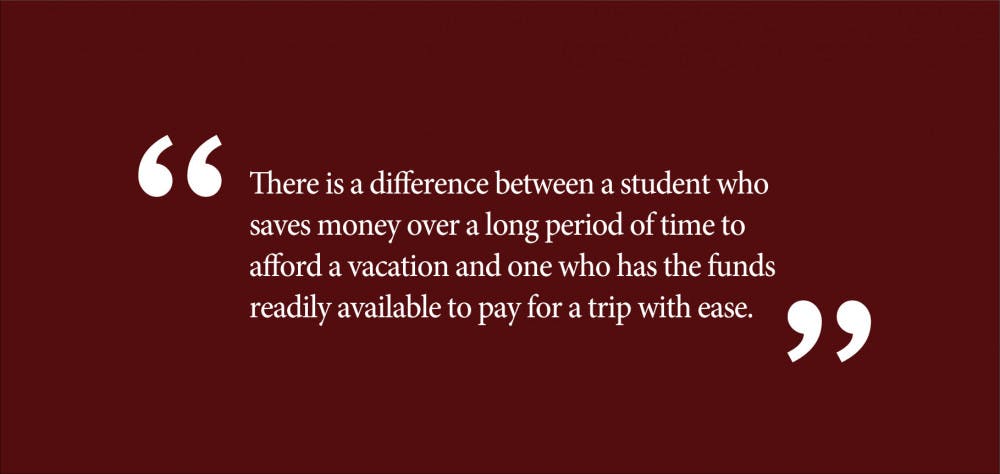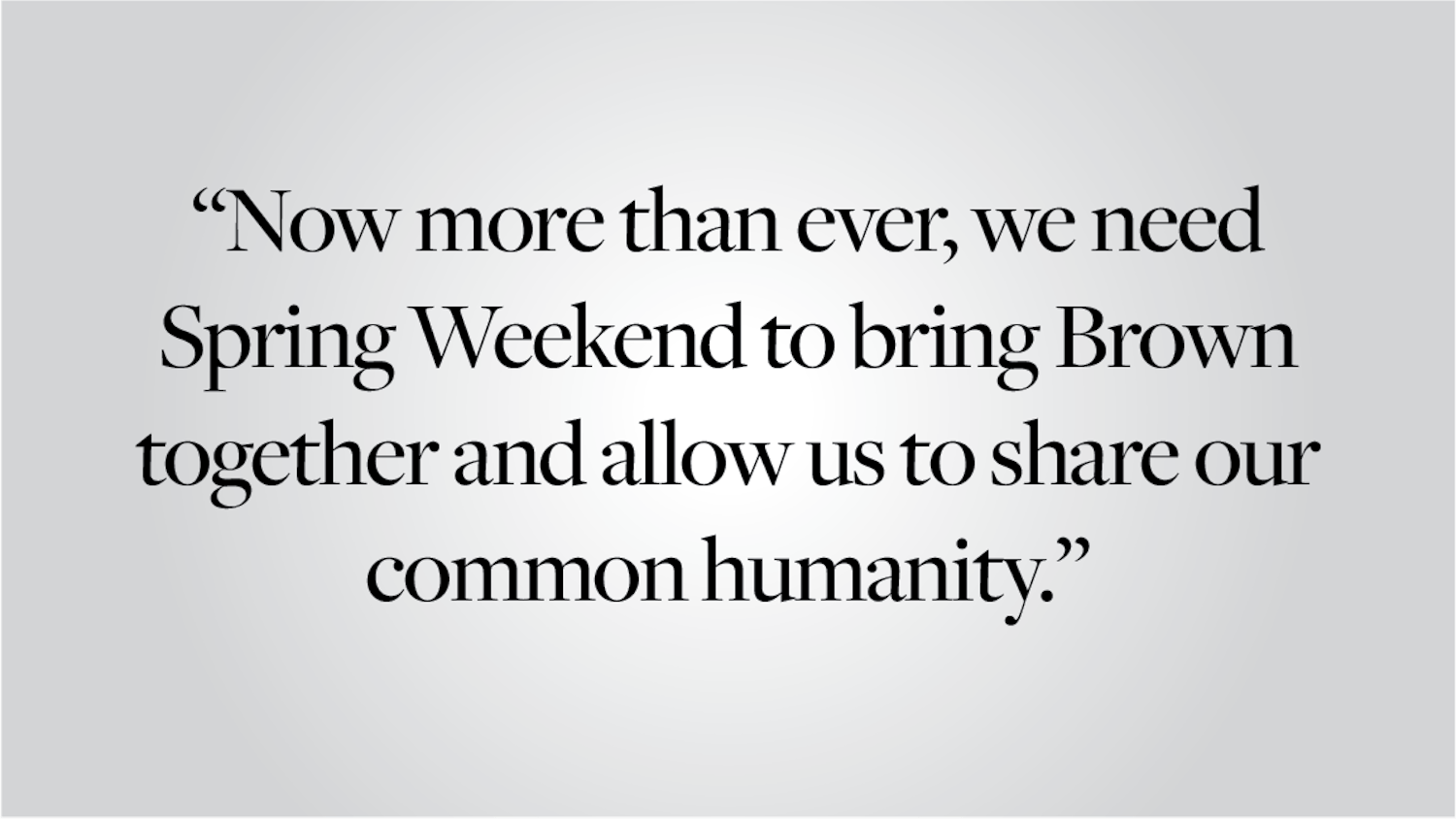Based on the Instagram feeds of countless Brown students, it seemed as if many of us dispersed to one of three locations for spring break: Spain, Mexico or California. In the torturous weeks leading up to break, we longed for the moment at which we could abandon Brown’s demanding schedule and morph into more carefree versions of ourselves. Indeed, vacationing has long been a quintessential aspect of spring break culture. The week-long respite from school is sensationalized as an opportunity to gather a group of friends and explore an exciting new city. It could be that spring break trips are a subcategory of college culture more broadly. The break is just one part of a four-year period that is expected to be the most adventurous and liberating of our lives.
By now it has been recognized that mainstream spring break culture can be a toxic subject. This is especially true in the context of social media, in which we curate our feeds to display only the most fascinating segments of our lives, including our vacations. On the other hand, there will always be students who opt either to go home for spring break or not travel at all. For some of these individuals, seeing snapshots of others’ travels can make them feel inadequate. In other words, if one is not going on vacation for spring break, they might feel as if they are losing an opportunity to create a meaningful youth experience.
Wealth and class play an important role in who gets to enjoy the “typical” spring break experience. Vacations are undoubtedly more accessible to those with substantial disposable income. At the same time, traveling may now be slightly more accessible across socioeconomic classes. For example, it is easier for a group of friends to save money by splitting lodging, food and transportation costs. However, these costs, in addition to expensive flights, still add up and pose a barrier to traveling. Shortly before break, an anonymous user on Dear Blueno expressed a similar sentiment: “If you’re going home or away for spring break, then you’re privileged. It really sucks for those that can’t and have to stay here. Please be mindful of that when asking about spring break plans.”
As a moderate-income student, I initially had reservations about being included under the label of “privileged,” due to the fact that I happened to be going on a trip for break. After all, the ability to afford a vacation for myself or any other low-to-moderate income student is a much different process than that of a wealthy student. I had never traveled abroad before this spring break. The trip I took to Mexico was partly made possible by traveling with friends, with whom I shared the costs of our Airbnb, food and transportation. Even so, throughout the week I was concerned about running out of money. When this eventually did happen, and I had to request more funds from my parents, I had to be mindful of the bills and other responsibilities they had at home. Upon returning from break, I was completely out of money until the following Friday, when I was paid again. In light of these considerations, I was hesitant to count myself among those wealthy enough to go on vacation without it putting a dent in their disposable income.
On the other hand, whenever I was running low on money during break, I could rely on my parents to lend me the funds for food or a souvenir. Moreover, after break, my parents transferred even more cash to my checking account to last until I received my next check. Whenever I refrained from asking my parents for financial assistance, it was mostly my personal preference not to depend on them to subsidize my vacation. Furthermore, I was fortunate to be able to allocate the majority of my most recent check from my part-time job to my trip rather than to basic necessities. Overall, the fact that my parents still assume most financial responsibility for me is a privilege that allowed me to use my personal income solely for recreational purposes. In addition, that privilege enabled me to depend on my parents even after my own resources ran out.
My particular privileges do not negate the wealth disparities at Brown. I maintain that vacations are more accessible and carefree for wealthy students who can spend money without worrying about exhausting their resources. What I am arguing is that if we are to be critical of the privilege inherent in spring break vacations, the definition of privilege must be nuanced. In my case, I recognize that it is a privilege to be able to allocate my personal income toward a vacation rather than toward basic needs. However, there is a difference between a student who saves money over a long period of time to afford a vacation and one who has the funds readily available to pay for a trip with ease. Some of us are privileged in more areas of our lives and to a higher degree than others. Those disparities merit critique. At the same time, every student, regardless of class, is capable of identifying their set of privileges whether they are large or small in number. Of course, this can be done while still respecting the differences between socioeconomic classes.
Jordan Allums ’21 can be reached at jordan_allums@brown.edu. Please send responses to this opinion to letters@browndailyherald.com and other op-eds to opinions@browndailyherald.com.





